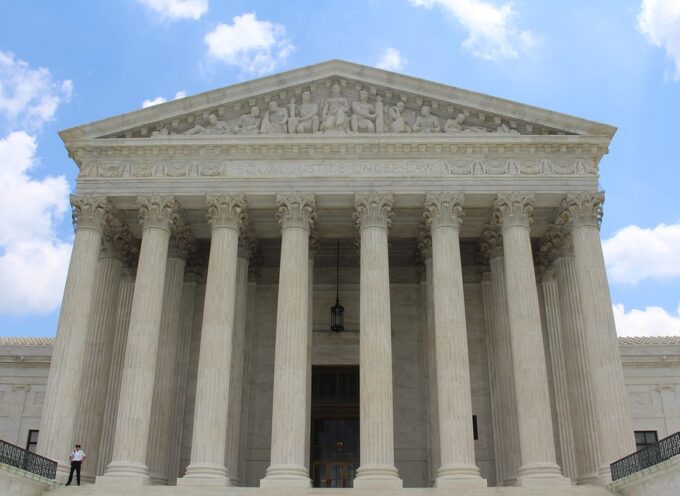This month, Pope Francis declared that the death penalty is “contrary to the gospel.” The statement, made on Oct. 11 to an audience of Catholic leaders on the 25th anniversary of the publication of the Catechism of the Catholic Church, suggests that the Catechism will soon be revised to reflect this revision in the Roman Catholic Church’s official teaching.
Francis reasoned that capital punishment is inhumane and that no person, even a murderer, should be treated in an inhumane manner. “One has to strongly affirm,” Francis said, “that condemnation to the death penalty is an inhuman measure that humiliates personal dignity, in whatever form it is carried out. And is, of itself, contrary to the gospel, because it is freely decided to suppress a human life that is always sacred in the eyes of the Creator, and of which, in the final analysis, God alone is the true judge and guarantor.”
He further reasoned that the gospel demands an open-ended opportunity for the offender to come to faith. “Life cannot be taken away from anyone” because we must always leave open “the possibility of a moral and existential redemption that will be to the favor of the [Catholic] community.”
What should we say to Pope Francis’ declaration?
We should say “yes” and “no.”
Yes, Christian teaching strongly affirms the dignity and value of every human life—including capital offenders—from the cradle to the grave. And yes, the Christian gospel offers moral and existential redemption to every human being—including capital offenders—from the cradle to the grave. That is why Christians should cultivate a “whole-life, pro-life” ethic that fights for the dignity of all humans, born or unborn, black or white or brown, male or female, rich or poor.
But no, the death penalty, when properly applied, is not against the gospel.
Christian abolitionists (those in favor of abolishing the death penalty) such as Pope Francis often argue that we should love even our enemies (Mt 5:44) and that we cannot love our enemies by killing them. Similarly, many abolitionists argue that Jesus was punished capitally on the cross so that no person would ever again need to undergo capital punishment.
Coupled with these arguments, Christian abolitionists often argue that capital punishment cruel, unusual, and inhumane. Instead of killing capital offenders for their sins, abolitionists argue, we should cure them. Sick people need psychiatrists and doctors rather than executioners.
In response to abolitionists, Christian retentionists (those in favor of retaining the death penalty) make a number of arguments, including these five:
First, the death penalty is a legitimate penalty for capital crimes because the primary purpose of capital punishment is to punish rather than to rehabilitate the criminal or deter future crimes. Even though prisons should seek to rehabilitate criminals and although the death penalty will deter the offender from further crime, nonetheless, the primary response of the government to a capital crime is to punish the capital criminal.
Second, Christian love is not contrary to capital punishment. In fact, the gospel is based upon the very principle—“a life for a life”—that made the cross necessary. It takes a life to atone for a life (Lev 17:11); therefore God, in his love for us, gave his life on our behalf (Jn 3:16). The penalty for capital crimes against God is “death” and therefore it took the death of God’s son to atone for our capital crimes against God. Thus even in capital punishment, Christians can speak words of eternal life to a capital offender even as he awaits temporal death.
Third, Christ’s atonement on the cross did not abolish capital punishment. Instead of abolishing the life-for-a-life principle, it exemplified it. In the years after Christ’s resurrection, the apostles still recognize its sway. Consider Paul’s statement to Festus, “I stand at Caesar’s judgment seat, where I ought to be judged…. If I am an offender, or have committed anything deserving of death, I do not object to dying” (Acts 25:10-11). If Paul recognized the continuing legitimacy of the death penalty, so should we.
Fourth, the death penalty affirms human dignity rather than denying it. In fact, it is the highest possible affirmation of human dignity, leaving open the highest possible punishment for shedding innocent blood. C. S. Lewis writes, “To be punished, however severely, because we deserved it, because we ‘ought to have known better,’ is to be treated as a human person made in God’s image.”
Fifth, the death penalty does leave open the possibility of a “moral and existential redemption,” as Pope Francis puts it. The way the death penalty is applied in the United States and similar nations leaves the offender decades to repent of his sin, embrace the Lord of life, and experience redemption and reconciliation.
By no means are these points the only evidence in favor of retaining the death penalty. We could also build philosophical or sociological arguments that the death penalty is an especially just way of expressing society’s moral outrage against the shedding of innocent blood; that it is, as Ernest van den Haag puts it, the “best bet” we have in our attempts to deter future crimes; and that it is not a cruel or unusual punishment. However, because this article focuses on Pope Francis, we limited our discussion to the “gospel” and “human dignity” aspects of the debate.
Neither are these the only points to be made concerning the application of the death penalty. We could discuss proper sentencing and appeals, including the existence of any systemic classism or racism that would cause unjust death penalties. We could address humane procedures for putting the offender to death. However, again, because this article focuses on Pope Francis’ comments we limited our discussion to the question at hand.
We should conclude that the death penalty, when applied properly, is not against the gospel. The government is not the church and, in the case of capital punishment, its primary goal is retribution, even while also securing other goals, such as deterrence and rehabilitation.
And while the government’s primary goal is retribution rather than gospel proclamation, the church’s goal is gospel proclamation rather than retribution. While the government metes out temporal death, the church offers eternal life. While the executioner’s power is a death-inducing needle, the Christian’s power is a life-giving word. Let the church, therefore, recognize that the gospel is displayed through Christ’s crime-absolving atonement rather than the state’s temporal justice.
Subscribe
Never miss a post! Have all new posts delivered straight to your inbox.








Capital punishment predated the law of Moses. It’s purpose was to increase and protect the value of human life of man, which was in the image of God. Gen 9:5-6
When administrated correctly brings order to and respect for society and it’s inhabitants.
All Catholics May Support The Death Penalty
“There is a very robust debate countering both the Church’s 20 year old anti death penalty teachings (CCC, amended 1997) and the statements by Pope Francis, both of which are contradicted by fact, reason, the Gospel and 2000 years of Catholic teachings, through today”, as detailed.
All Catholics May Support The Death Penalty
http://prodpinnc.blogspot.com/2017/10/all-catholics-may-support-death-penalty.html